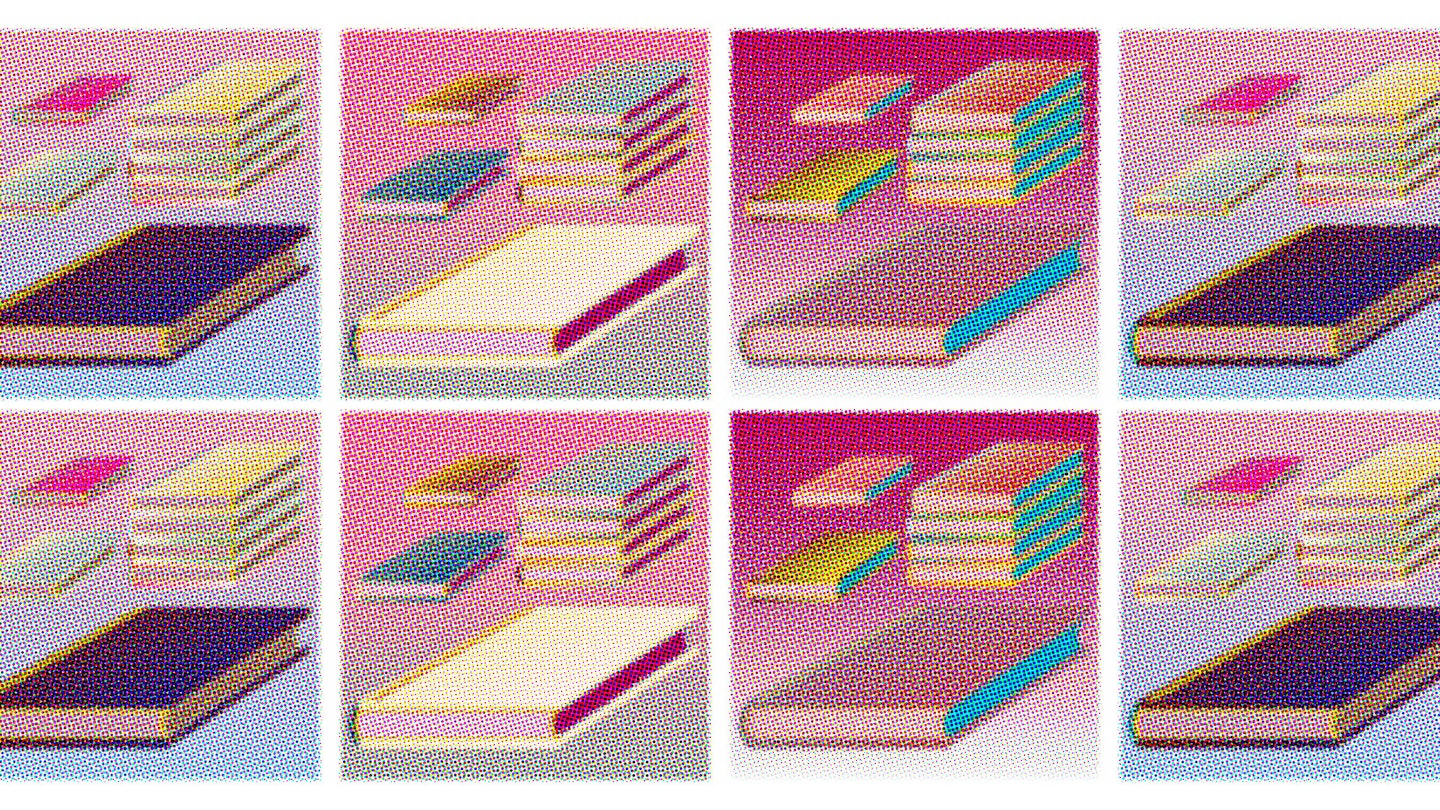'Babe. It was the most edge-of-your-seat, heart-in-your-mouth, jaw-on-the-floor book since Harry Potter and the Deathly Hallows. What do you mean you ‘couldn’t get into it’?!'
Your mate’s staring at you like you’re a freak –a stupid freak – and she can’t believe she’s only just noticed it. You, meanwhile, are wondering if you’re the only woman in the world who, when she picks up an IRL book, struggles to get past the first two chapters without losing interest and/or concentration. Well, newsflash: you’re not. Because if my friends, their friends, and the friends of the editor who commissioned this piece are anything to go by ‘not being able to get into a book’ is up there with ghosting as the complaint of the 21st century. So if you’re reading this on your phone, instead of having a rematch with Wolf Hall ('no, it is NOT the same as the TV series,' insists your bookworm mate, and she’s right) then read closely. Because there’s a reason you’re struggling; there’s a reason we’re all struggling – and it has nothing to do with your intelligence, and everything to do with the device you are, at this very moment, holding in your hand.
'It is completely connected. In every single way.' Amanda Hills doesn’t pause for breath when I ask her about smartphones and reading. As a psychologist and writer specialising in addictions of all shapes and sizes, she is in no doubt that this 'constant use of phones and screens is potentially disastrous' not just for our ability to read literature, but for social interaction as a whole. 'This disjointed way of communicating is going to do severe damage to human relationships. People are looking at their phones, messaging others, even when there is someone in front of them. Everything they do is being shared elsewhere, in another dimension. Their experience is scattered' she says: be it of the friends their seeing, the road they're traveling, or Thomas Cromwell’s relationship with Henry VIII.
Whatsapp is the biggest culprit; Instagram a close second. 'With Whatsapp, you are just sending a stream of consciousness. Three words, then another three words, then another three words, all on the same topic. If someone is operating like that, it’s not difficult to realise their concentration span is shot to pieces,' exclaims Hills. This is not 'multitasking,' she continues. This is just not concentrating on the task in hand. Research at the University of California, Irvine, suggests that when we’re interrupted, returning to the original task typically takes 23 minutes and 15 seconds – and that the typical office worker is interrupted or switches tasks every three minutes or so. If your phone is right beside you or in your hand while you’re reading, it’s little wonder you’re floundering by page 19. You’re losing at least 23 minutes each time you check it – and you’re checking it all the damn time.
READ MORE: Miranda's Best Missed Moments From Sex And The City
Miranda SATC Quotes - Grazia
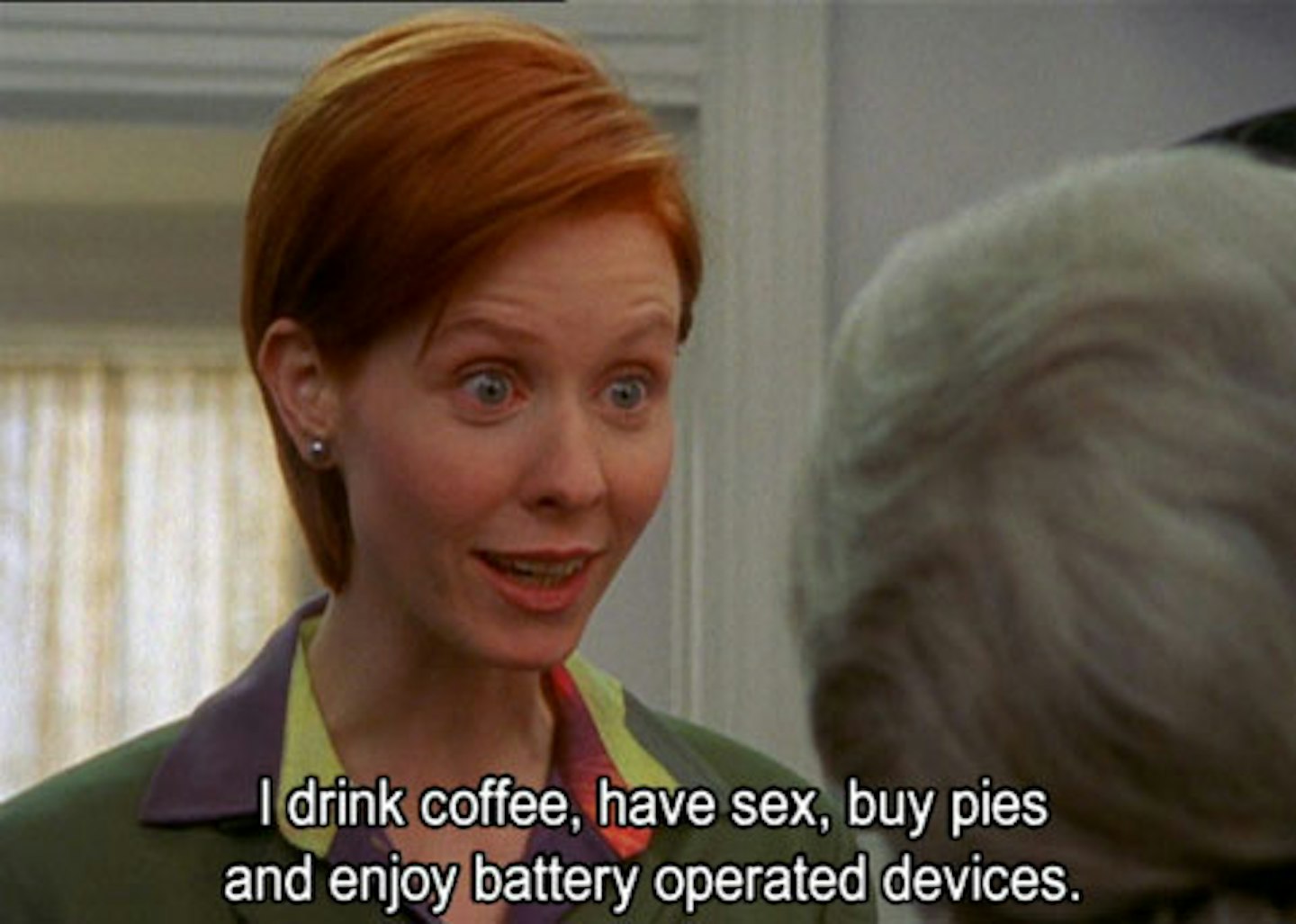 1 of 19
1 of 19When Miranda effectively summed up our adult lives.
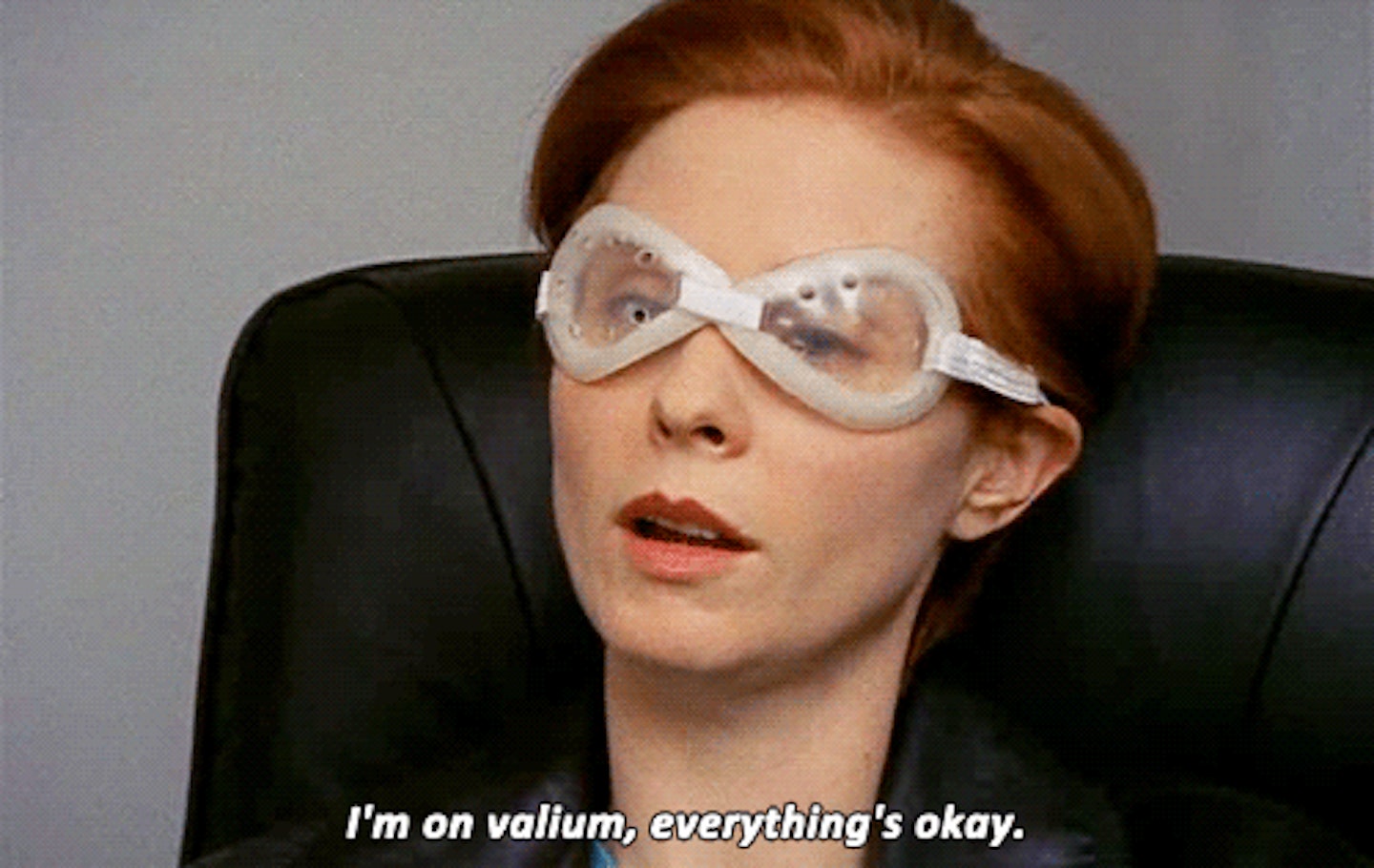 2 of 19
2 of 19The time Steve thought Miranda might need some help but she totally had it covered.
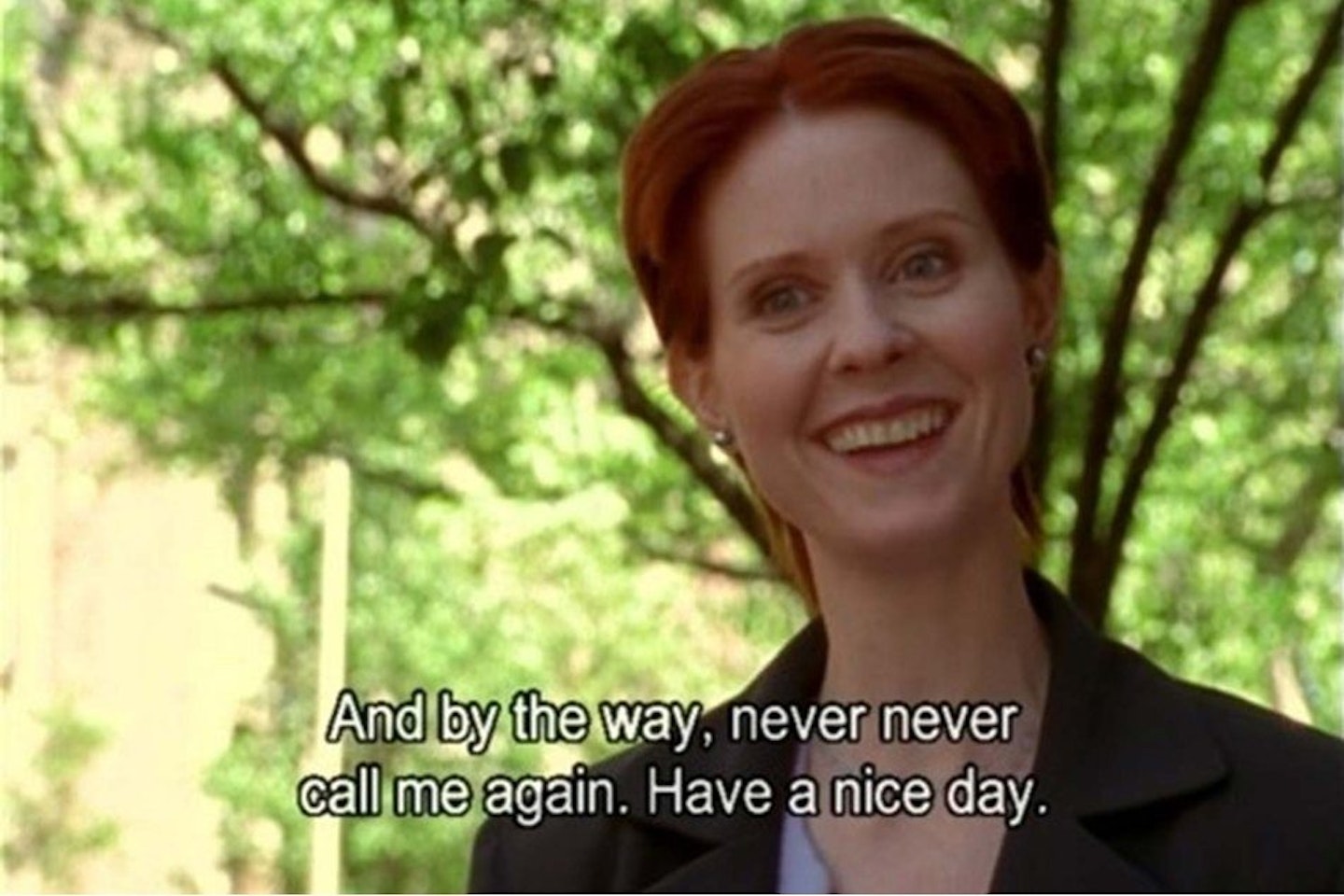 3 of 19
3 of 19And the time she taught us how to end the hell out of a shit relationship.
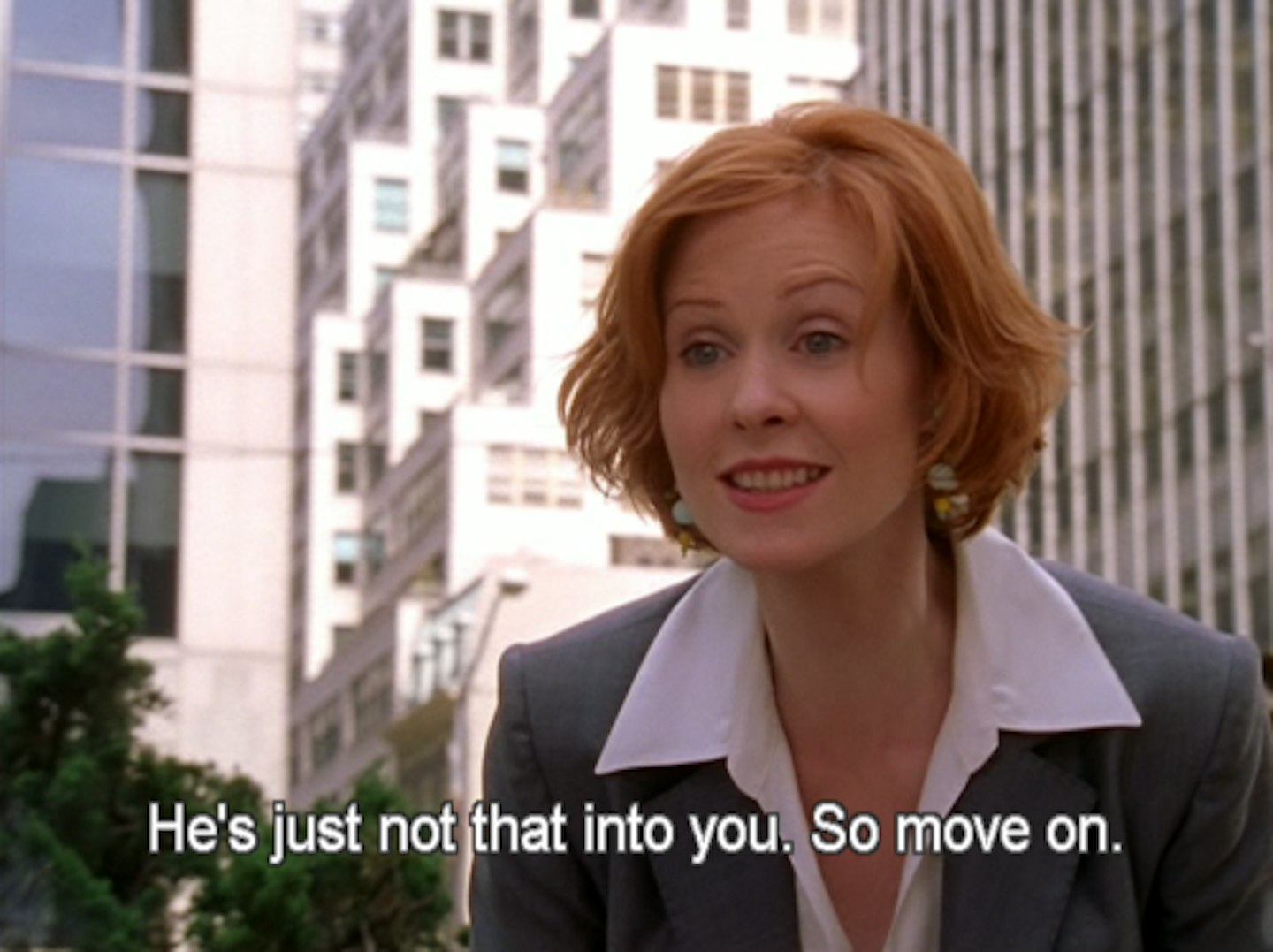 4 of 19
4 of 19When she served some executive truths while wearing the biggest shirt collar in all of the land.
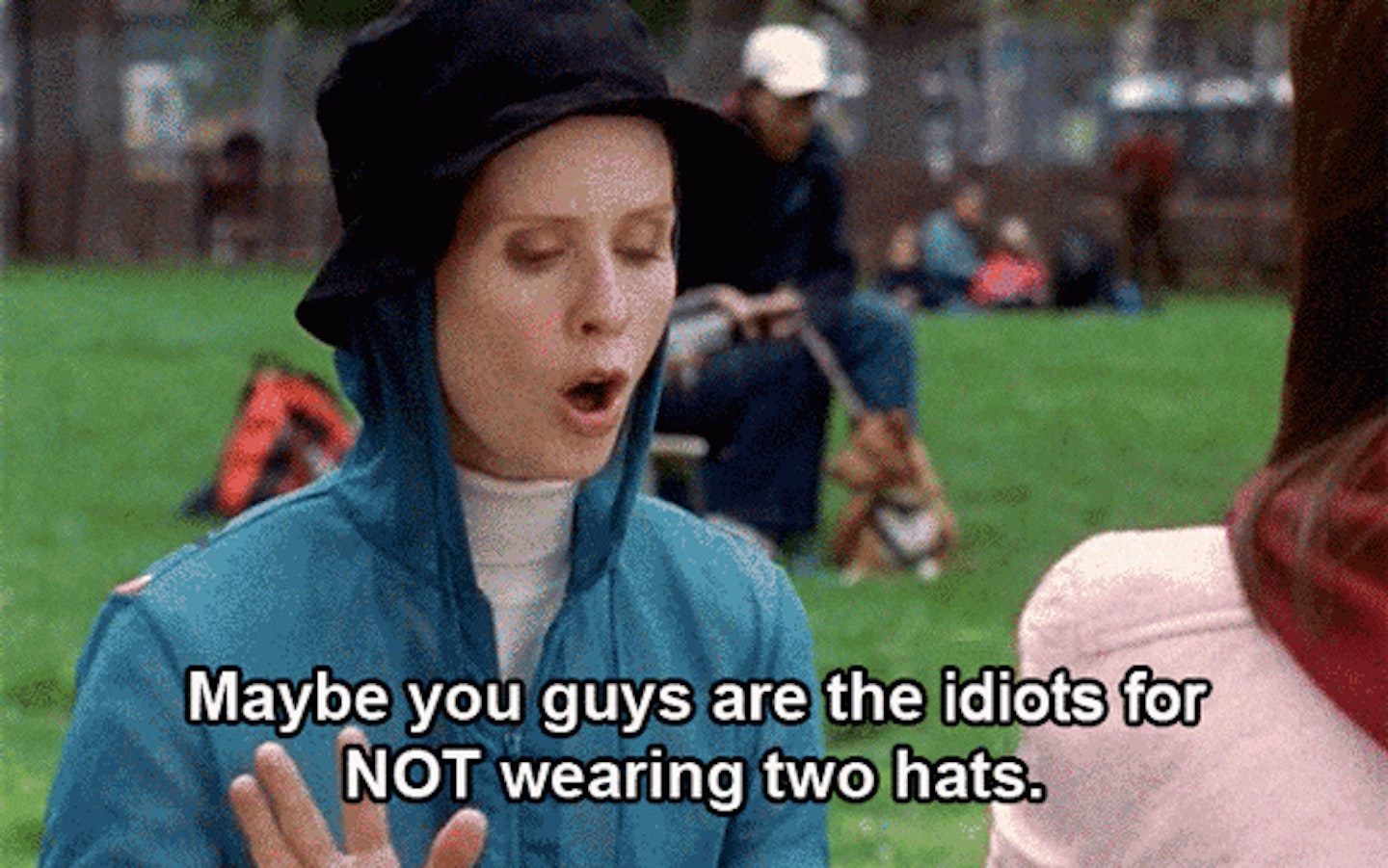 5 of 19
5 of 19When she just wanted to be left the fuck alone to be at one with her one experimental fashion choice, okay?
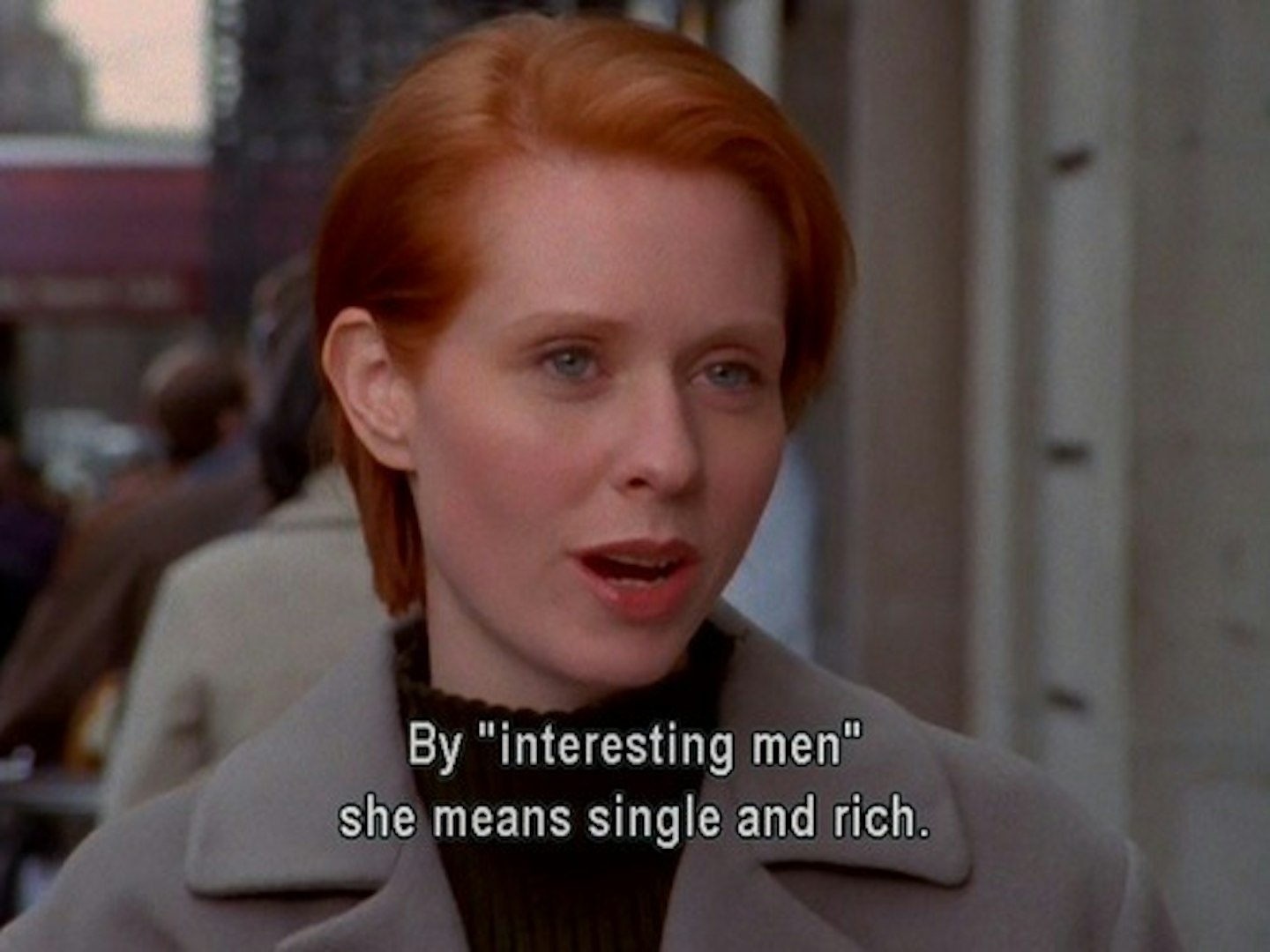 6 of 19
6 of 19That time Miranda translated the bullshit for our convenience
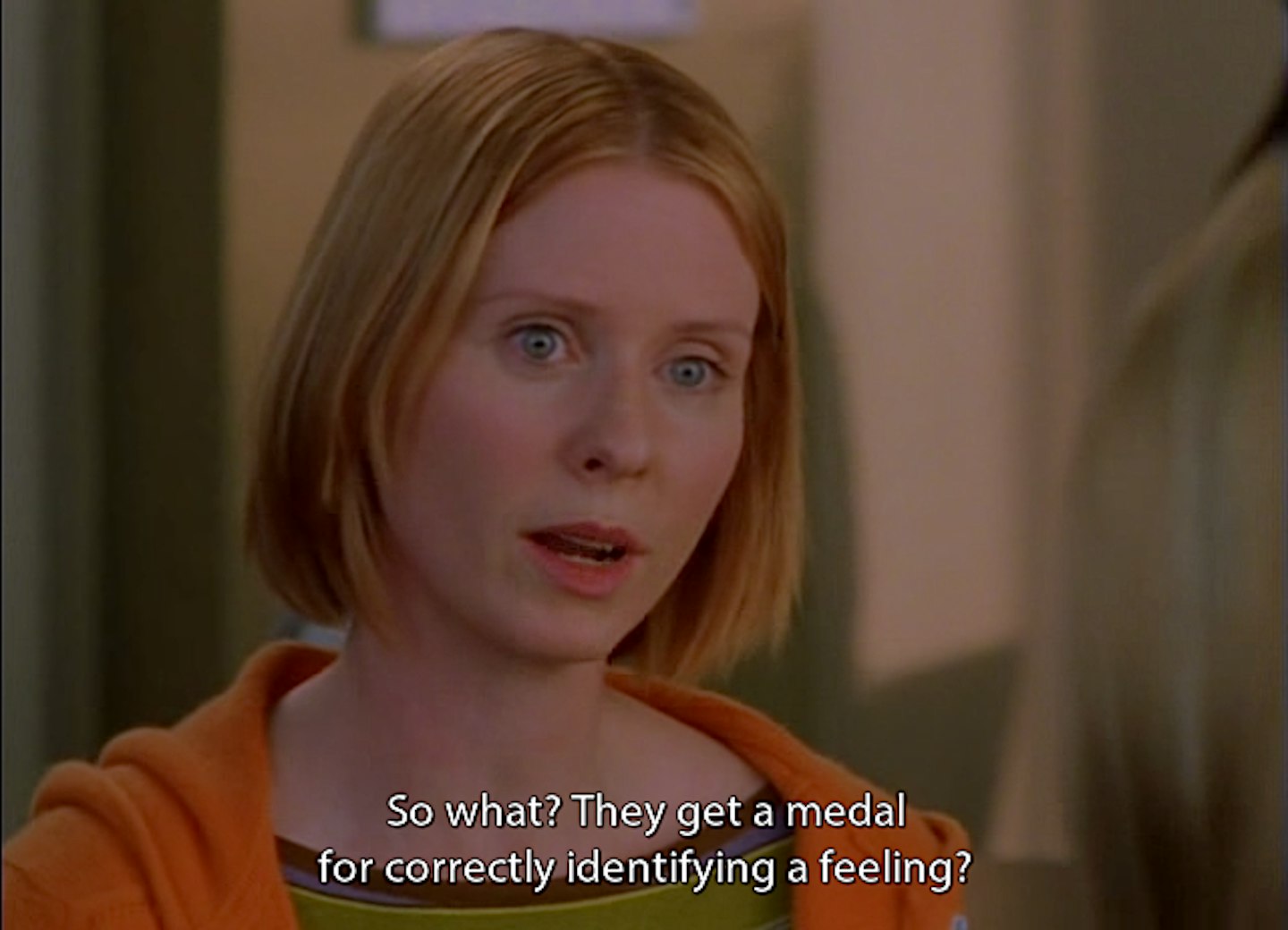 7 of 19
7 of 19And when she taught us that pats on the back should be earned, not handed out
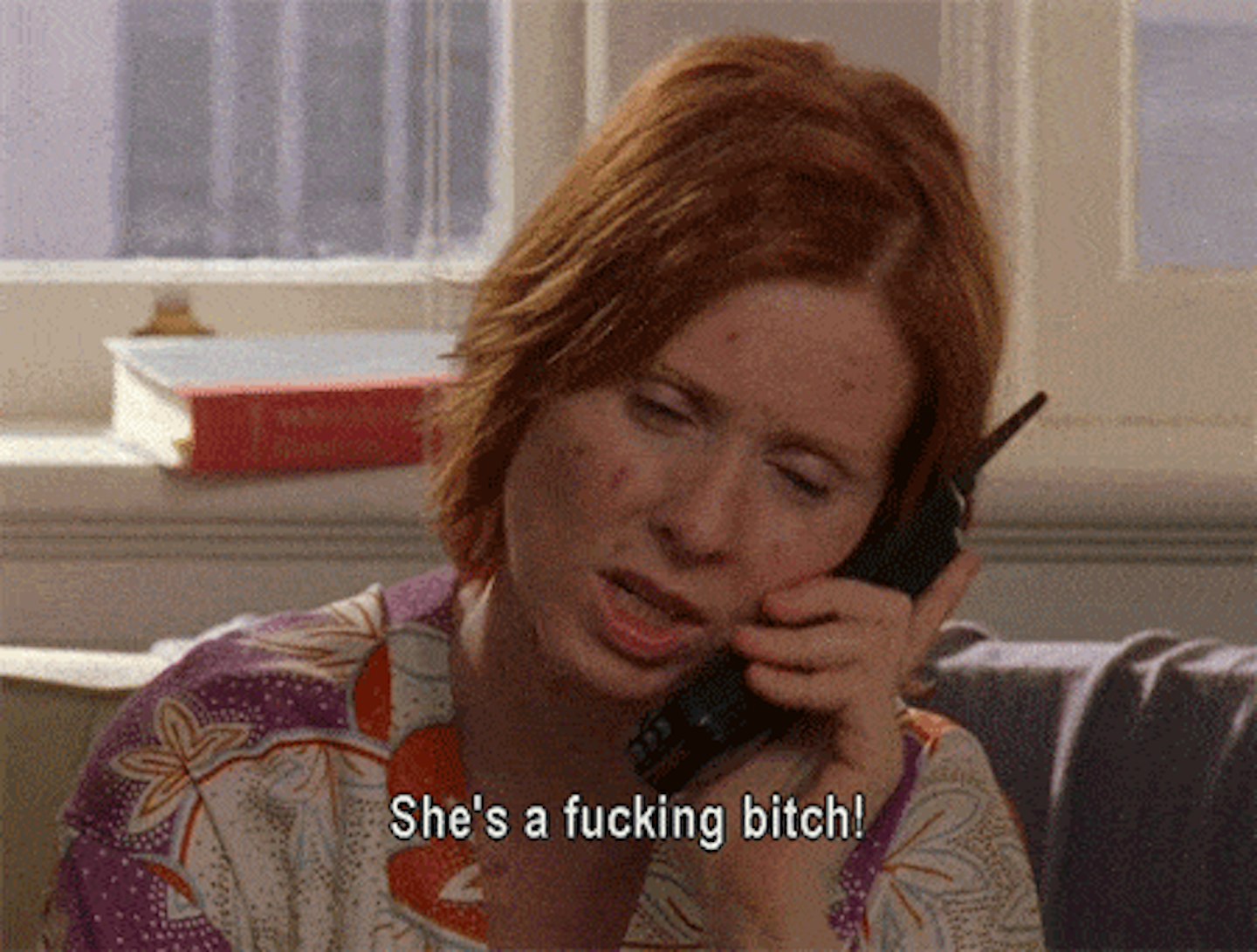 8 of 19
8 of 19When she put the truth out on a plate for everyone to pick at
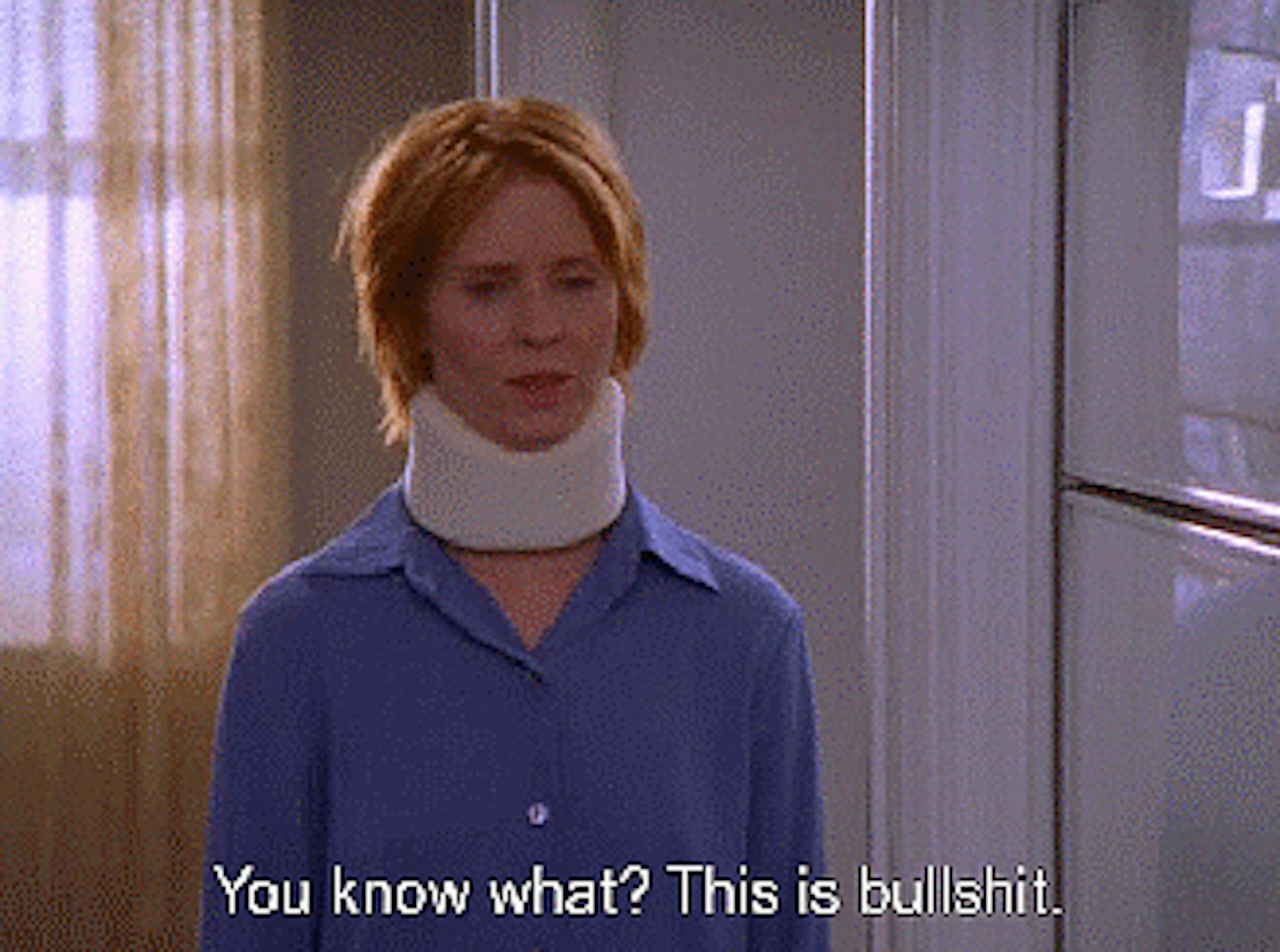 9 of 19
9 of 19And one more time for the people (Carrie) in the back
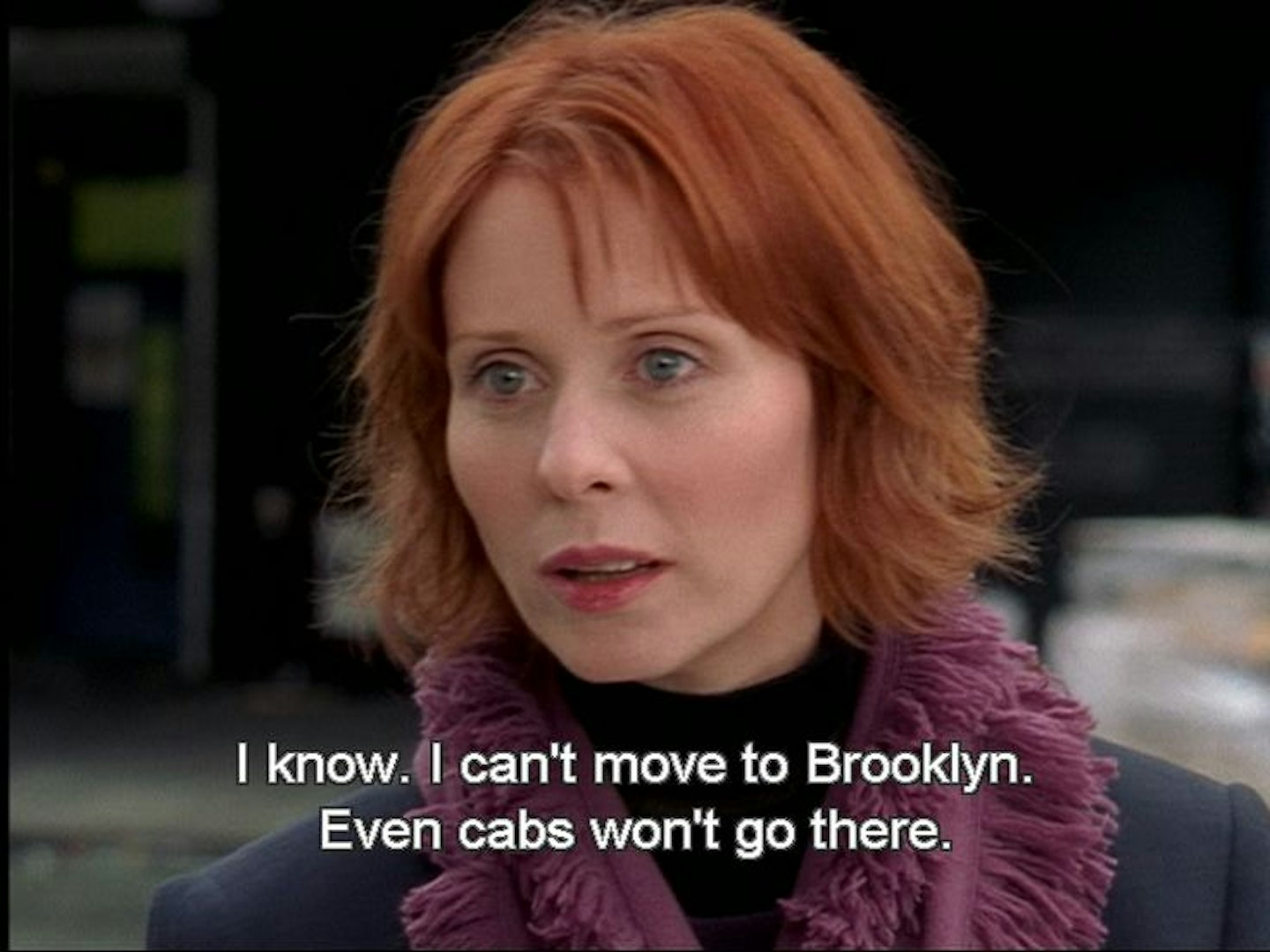 10 of 19
10 of 19Lol at the time she had no clue that Brooklyn was where the cool kids were
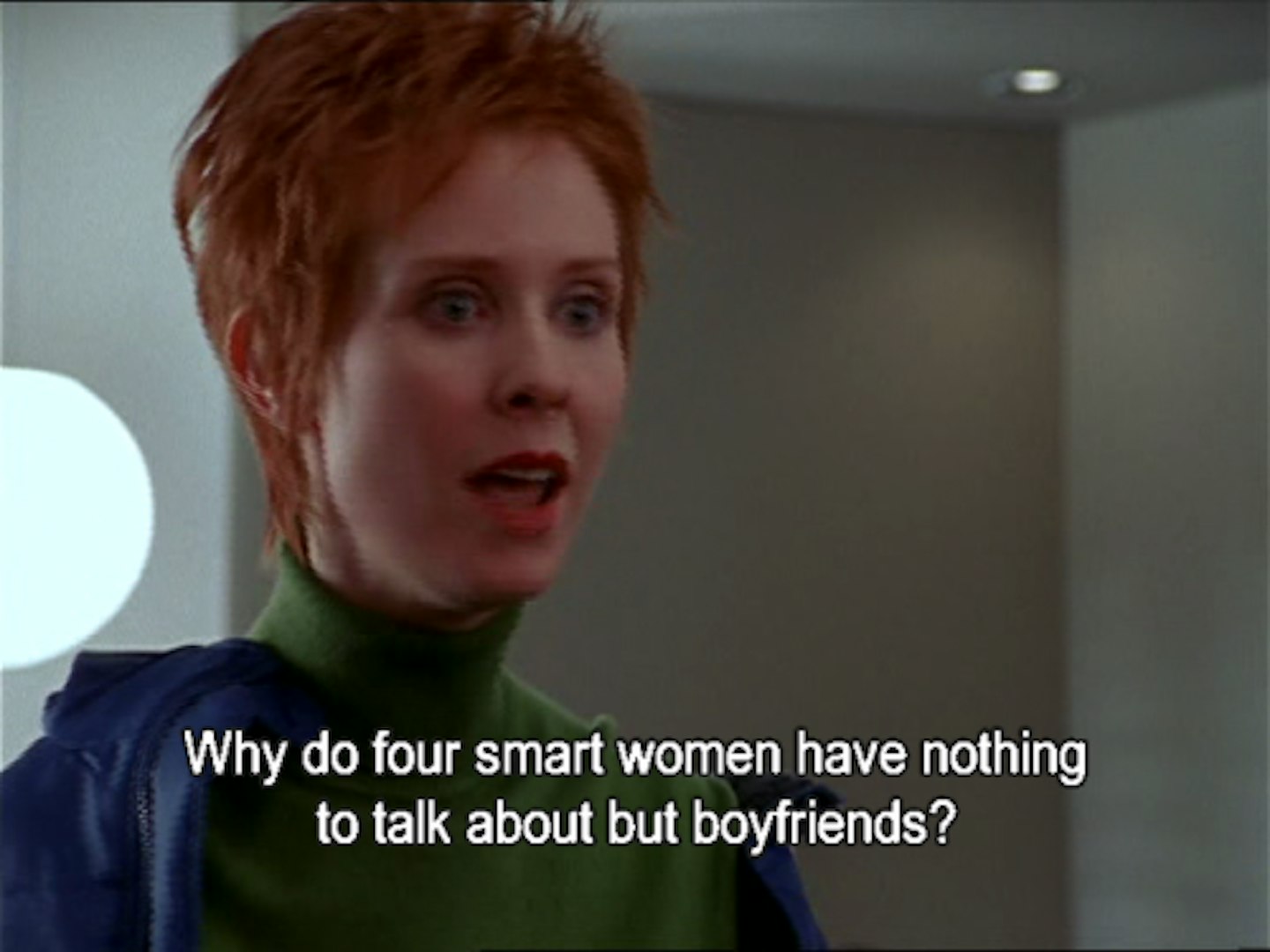 11 of 19
11 of 19When she asked the question we were too afraid to say out loud
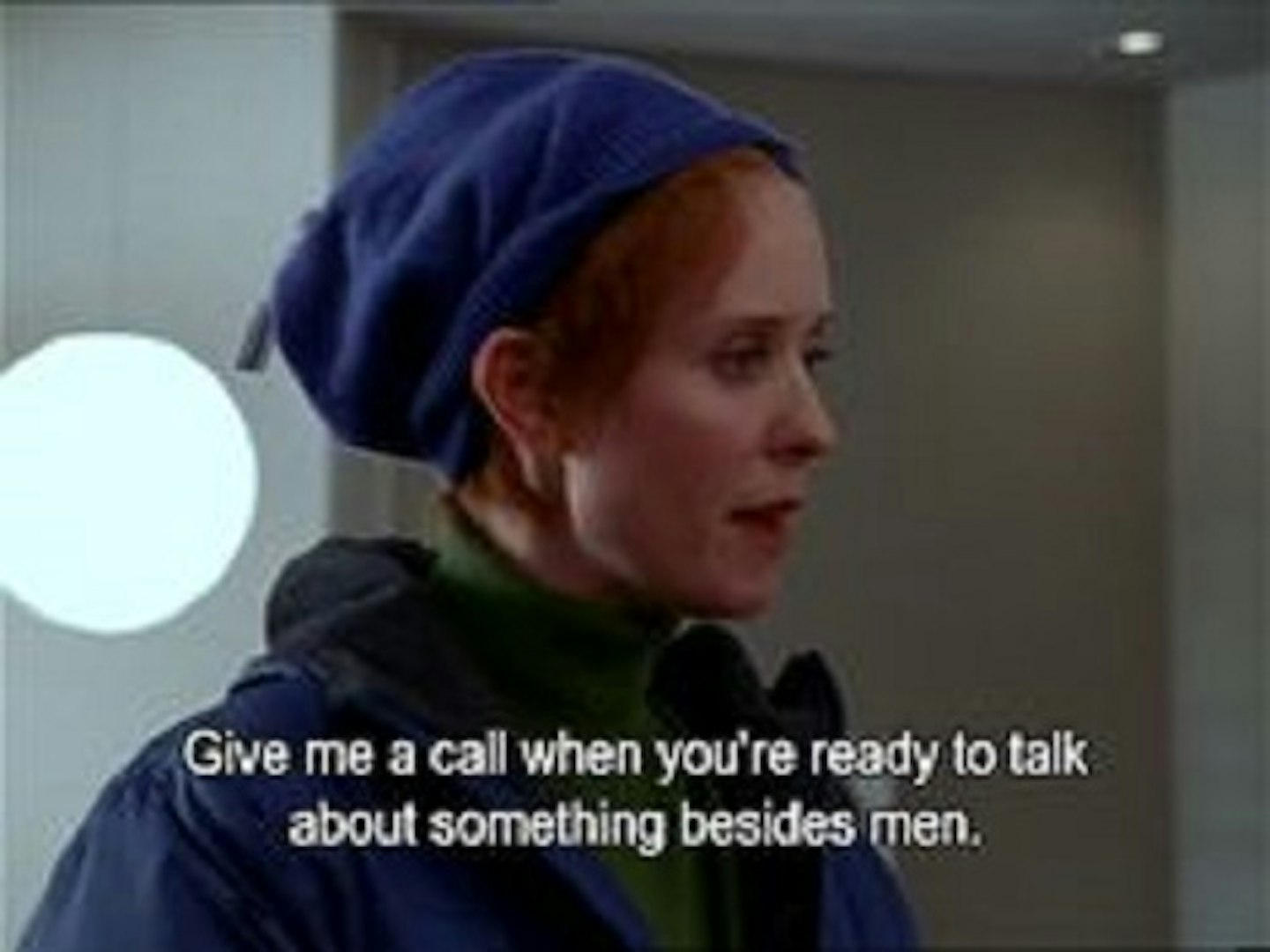 12 of 19
12 of 19And reiterated it just to make sure everyone got the message (it didn't stick)
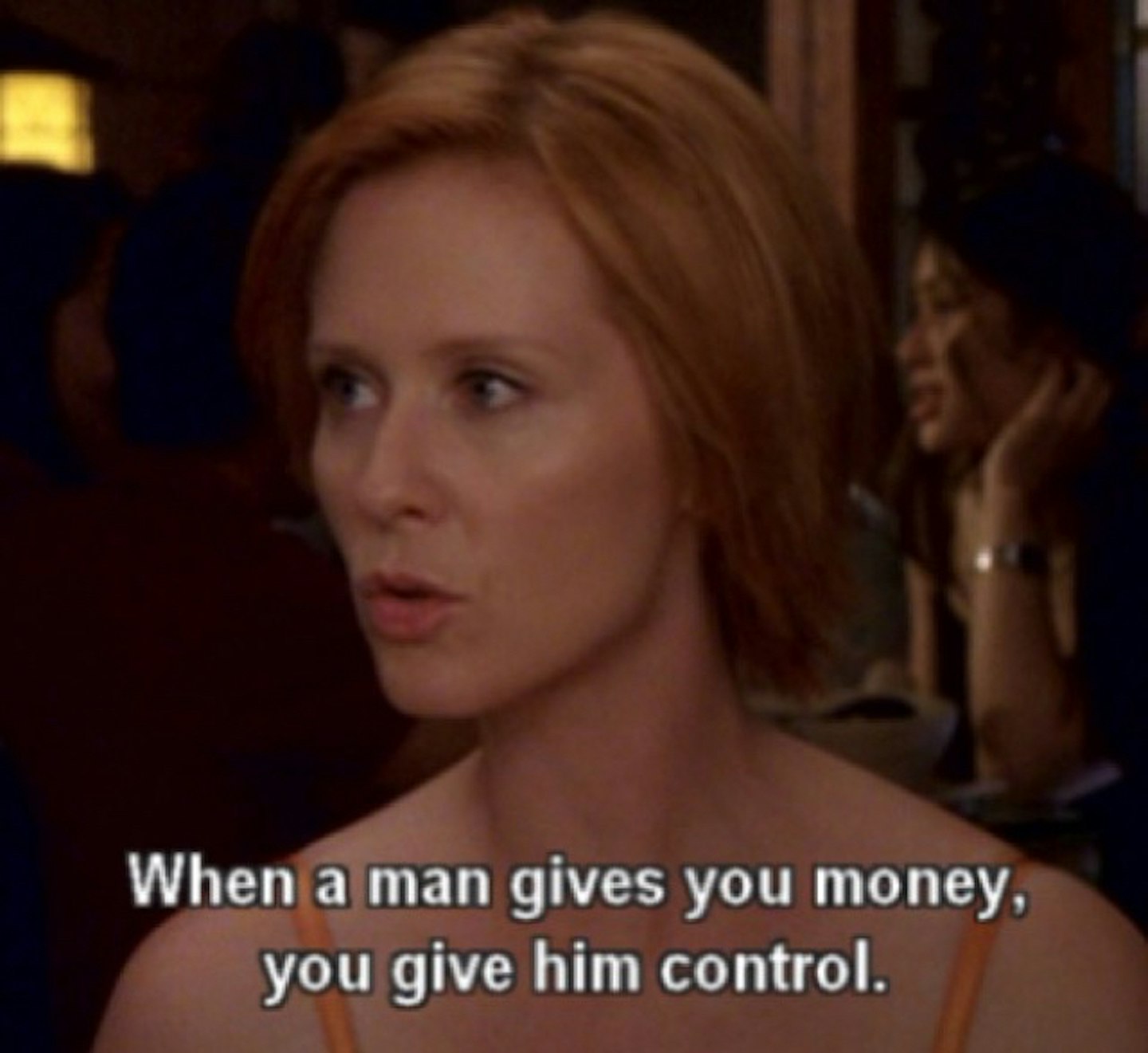 13 of 19
13 of 19When she earned herself a #staywoke shoutout
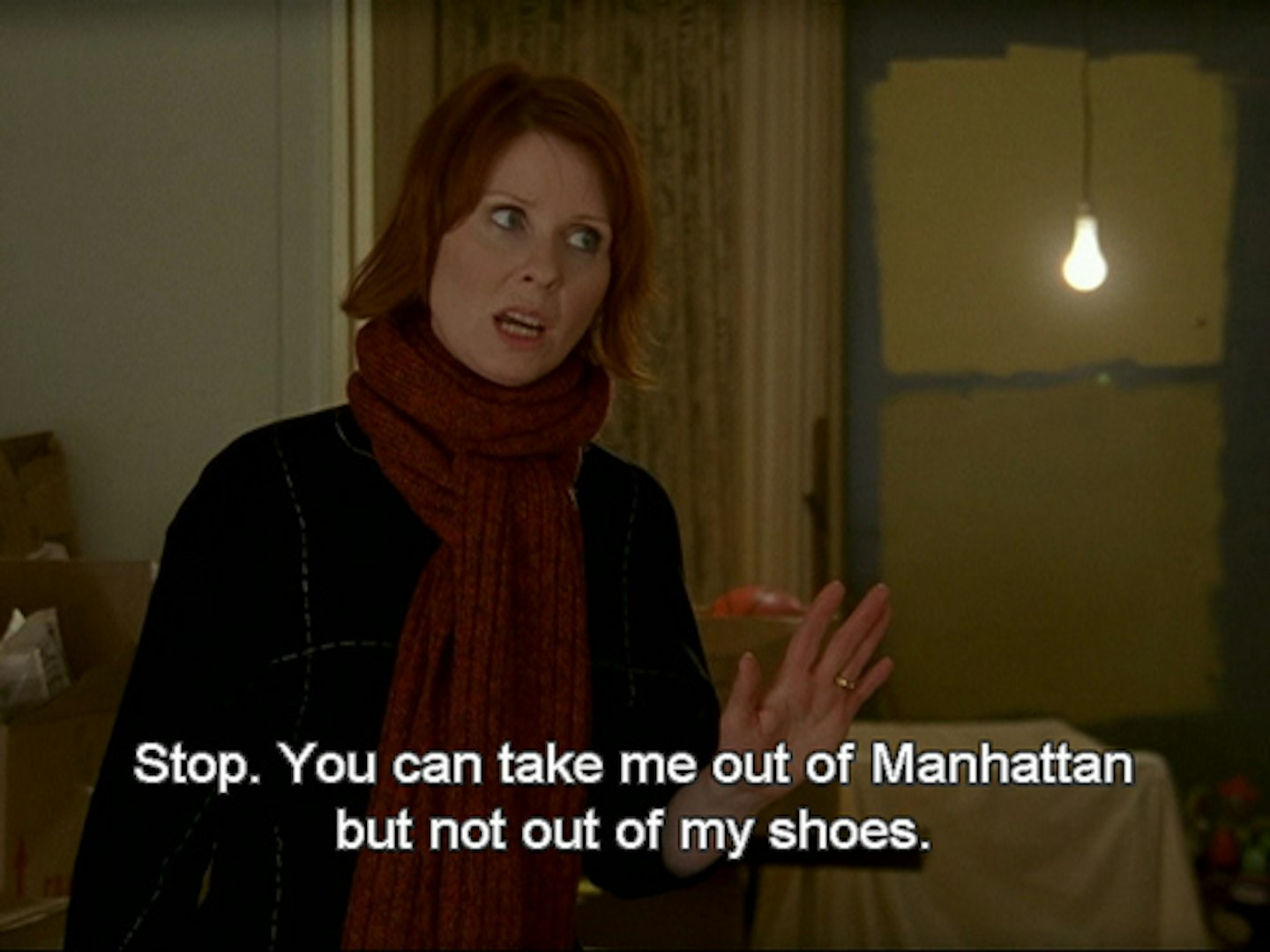 14 of 19
14 of 19Because logic is logic and Miranda needed her shoes
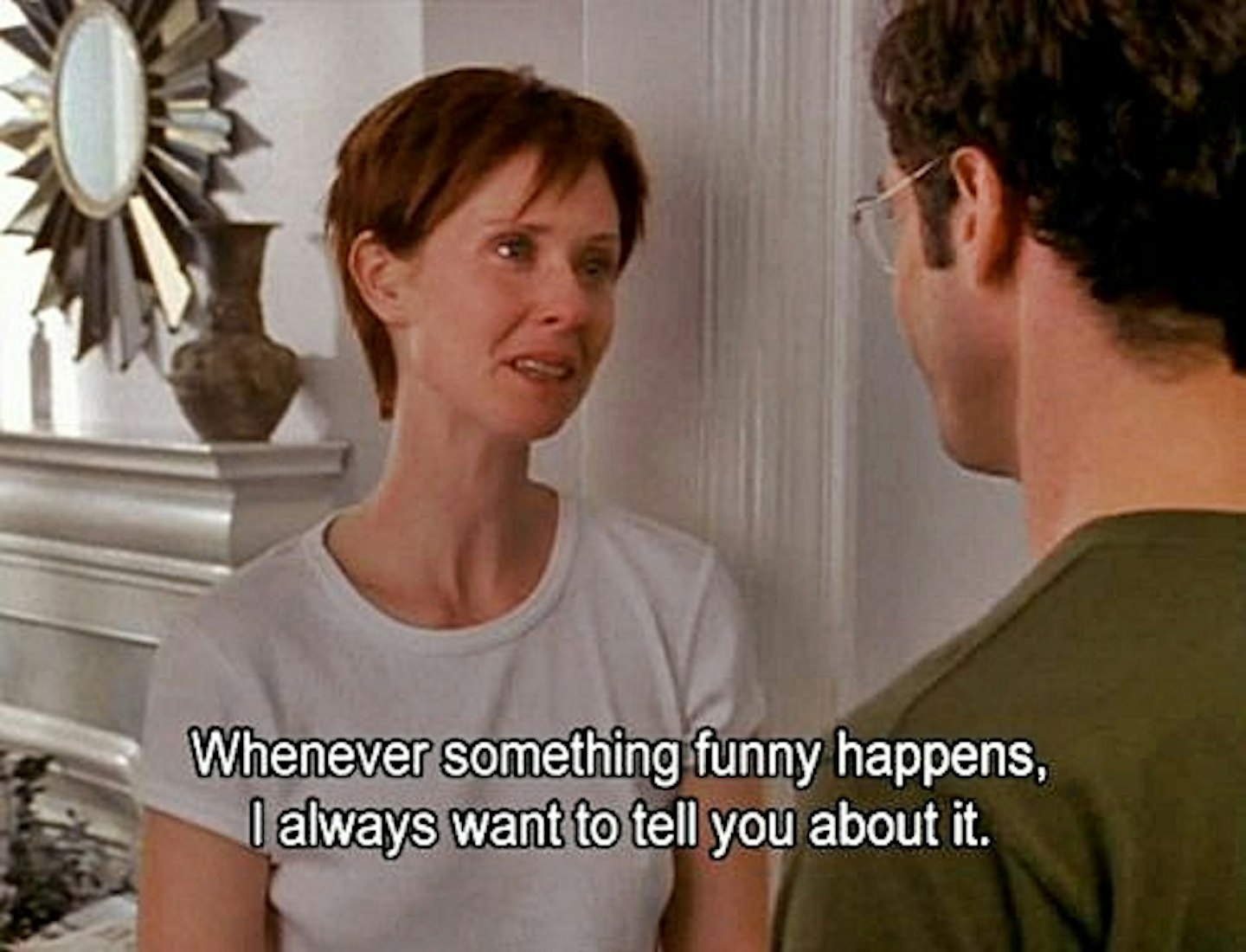 15 of 19
15 of 19When this beautifully emotional moment happened between the most relatable couple of the entire series
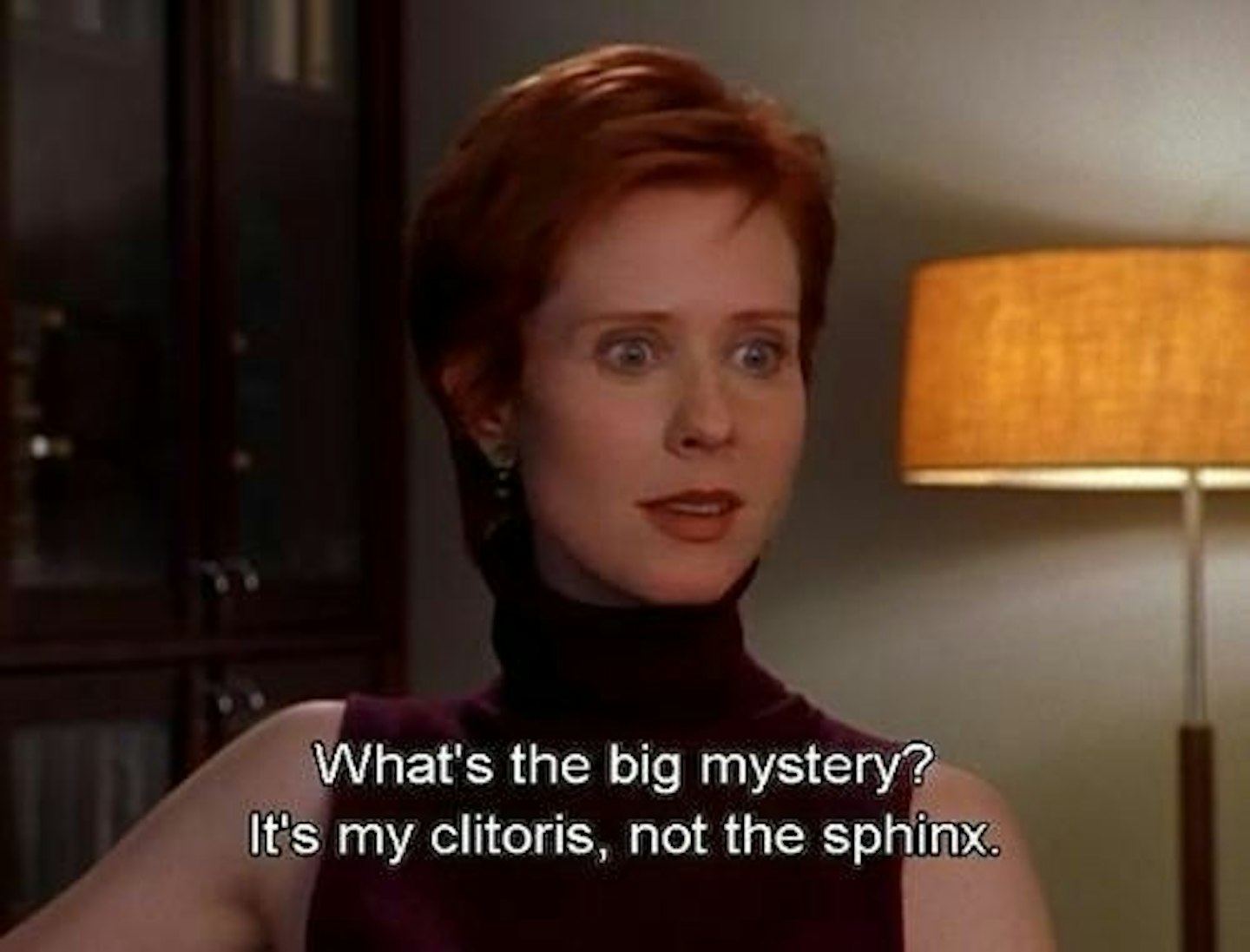 16 of 19
16 of 19When she gave us the words to repeat at our next unsuccessful sexcapade
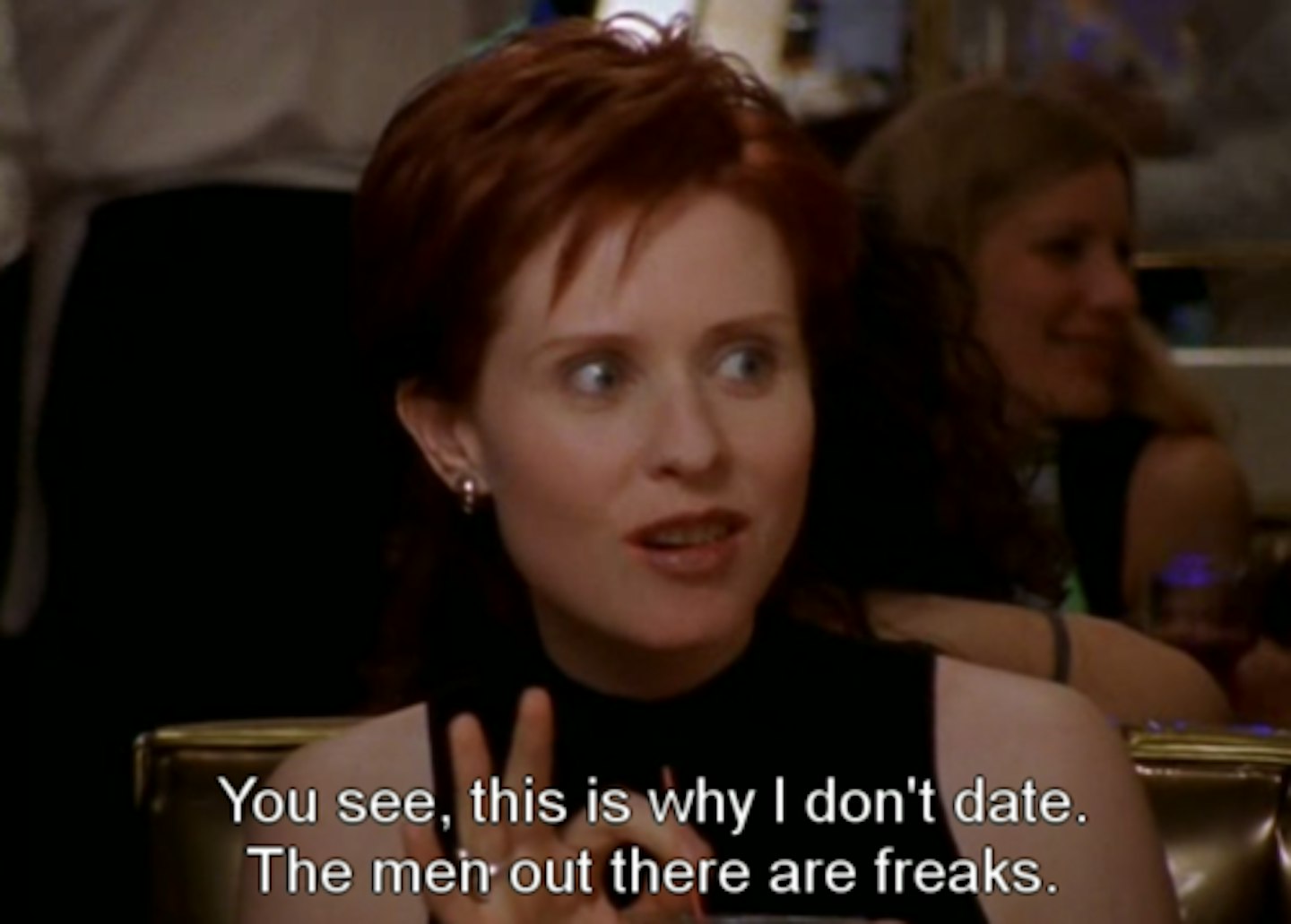 17 of 19
17 of 19I mean...
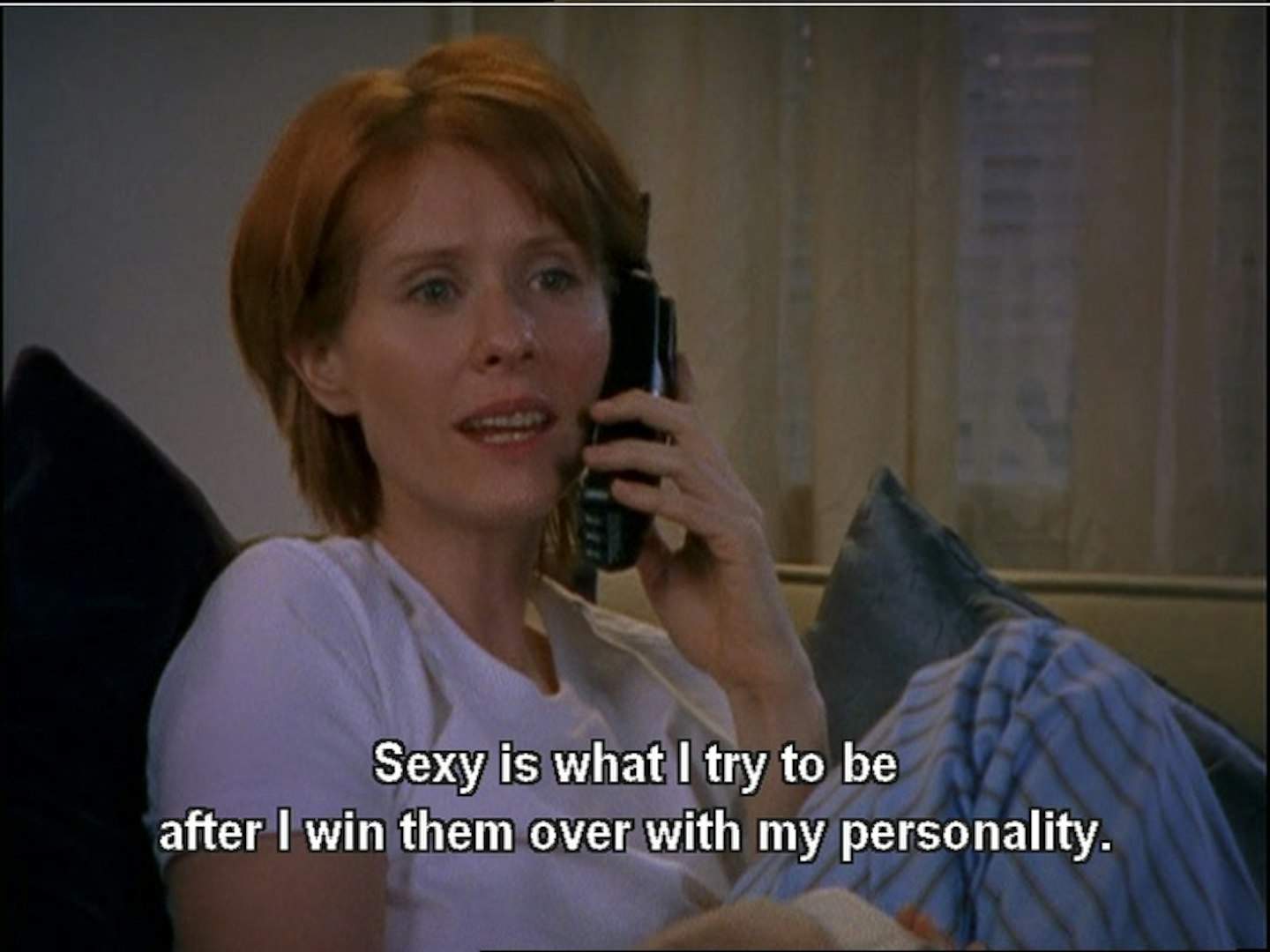 18 of 19
18 of 19The time we wanted to tell her that her personality is actually pretty fit
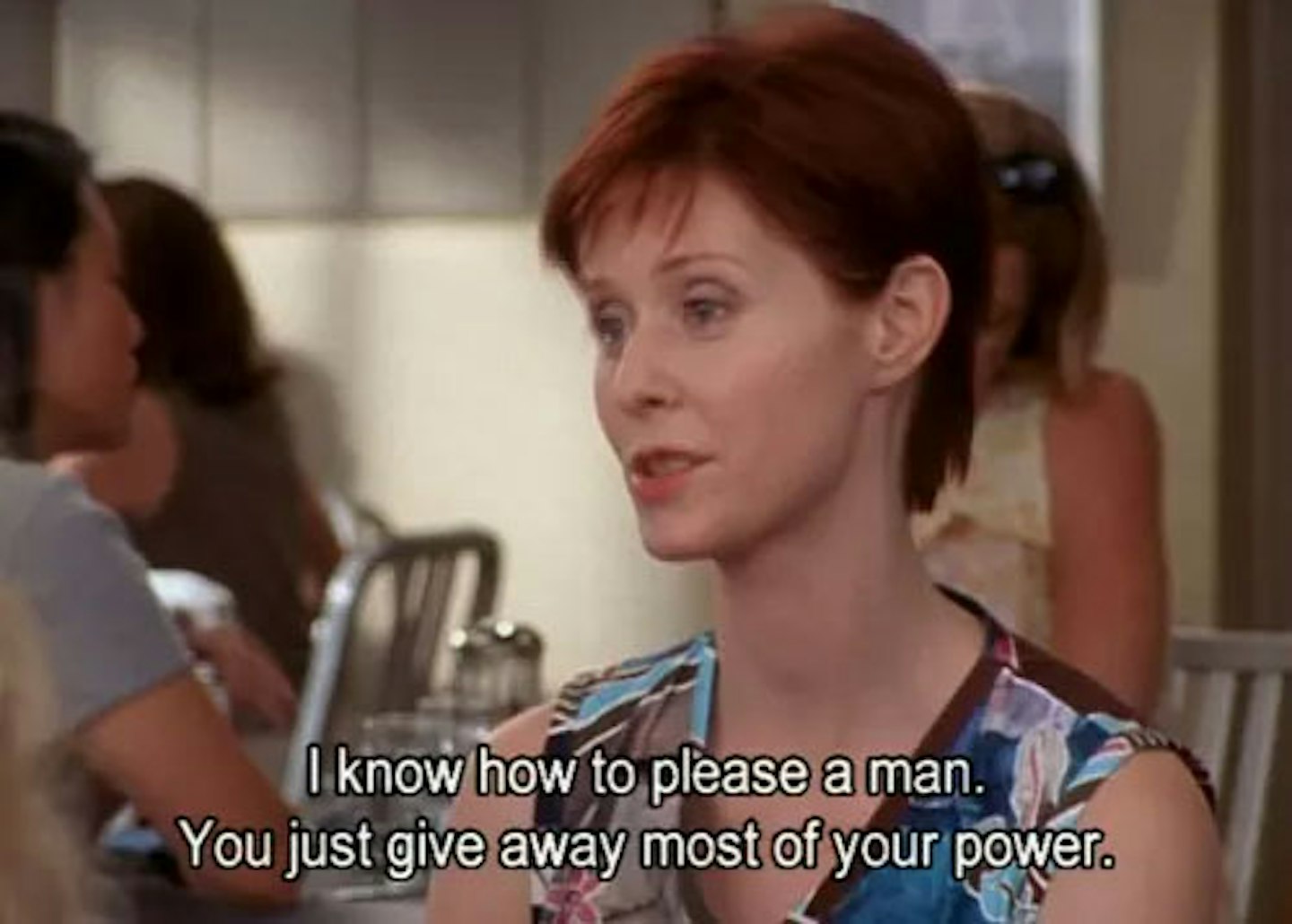 19 of 19
19 of 19And when her premature levels of wokeness preceded the audience it was given to
But what about Netflix? Telly? Gaming? Surely the plethora of alternatives on offer has as much to answer for when it comes to reading barriers. Hills, however, is unrelenting. 'I’m afraid the phones have to take the full blame for this. There have always been other options available but what people have in their hands 24/7 is their phone.' After all, even when we’re watching films we’re often multi-screening: checking Twitter, Whatsapping about last night, looking up just what else that fit actor you’re half-watching has starred in. 'If you can’t concentrate on a film, how on earth do you expect to concentrate on a novel?' says Hills. 'You need to have full concentration and focus if you are to read a book and occupy that other world.'
Besides she continues, skewering not just my ‘Netflix has upped it’s game’ theory, but my ‘Kindle’ theory too, 'it’s not just that the phones themselves that are problematic. Research has shown it is damaging simply to look at a screen too much.' Even one where the light has been dimmed, aka your Kindle, has the potential to deplete your melatonin and serotonin levels such that it affects your sleep and mood. 'Sleep disturbance is an epidemic. People are looking at screens all day long,' she tells me. Disturbed sleep makes it hard enough to focus; chuck in the Whatsapp effect and you’ve a 'shorter concentration span than a goldfish', according to one (admittedly entirely misleading and overhyped) ‘study’. But Hills isn’t looking at misinterpreted stats, she’s looking at her experience over years of being a psychologist; and with mounting evidence both anecdotal and analytical connecting poor sleep with our ‘on screen’ lives, she is wise to reiterate the established link.
At this point, I should probably fess up: I am, and have always been, anti-Kindle. Much as I appreciate the convenience of having the world’s library at your fingertips, the physicality of reading – the whisper of paper; the anticipation of nearing the end and feeling how few pages you have left to turn; the battered covers of a well-loved tome – is, for me, an inherent part of the whole affair. Still, I’d never considered the size of the text. For me, the fact you could increase font size was the least of e-reader’s evils. For Hills, however, it is a serious criticism: 'With a book, the words are often smaller than on screen – and you can’t make them bigger. You just have to look closer, which is good for the eyes, or get your glasses – and either way you’re making a conscious decision to concentrate. You’re not just hitting a button when your eyes get tired.'
It’s not all doom and gloom. Well, not entirely: There is no downplaying Hills fear that this 'constant use of screens will prove disastrous for us as a society,' not least our reading capacity. That said, with the willpower and the right tactics, she doesn’t rule out being able to break out of our bad habits and replacing them with better. 'Using your phone all the time is a habit,' she points out, 'but reading is, too. Human beings wired to hold on to repetitive behaviour.' Don’t’ underestimate the scale of the mountain you have to climb: as we all now know, each new notification delivers a sweet, short hit of dopamine, which is seriously addictive. Yet while the lure of Instagram, with it’s insta-gratification in the form of likes and comments, can be overwhelming, particularly at the end of a long day, it’s not like the only alternative option is Ulysses.
Don’t set yourself up for a fall, says Hills. 'The key is to want to read in the first place.' If James Joyce isn’t doing it for you, then read 'anything, so long as it’s paper: newspapers, magazines, easy novels' – and, crucially, remove your gadgets from your room. Treat your book as you would – or should – meeting a friend for coffee: 'put your phone away, preferably on airport mode, in your bag or another place out of sight. Engage in the person your speaking to.' You can’t form memories unless you are engaged in the present moment. 'People experiencing life through their phones will never have such good memories of it,' says Hills – so don’t, for god’s sake, insta your open book and cappuccino, and hashtag it #reading #lifegoals.
**Follow Clare on Twitter **@finney_clare
This article originally appeared on The Debrief.
